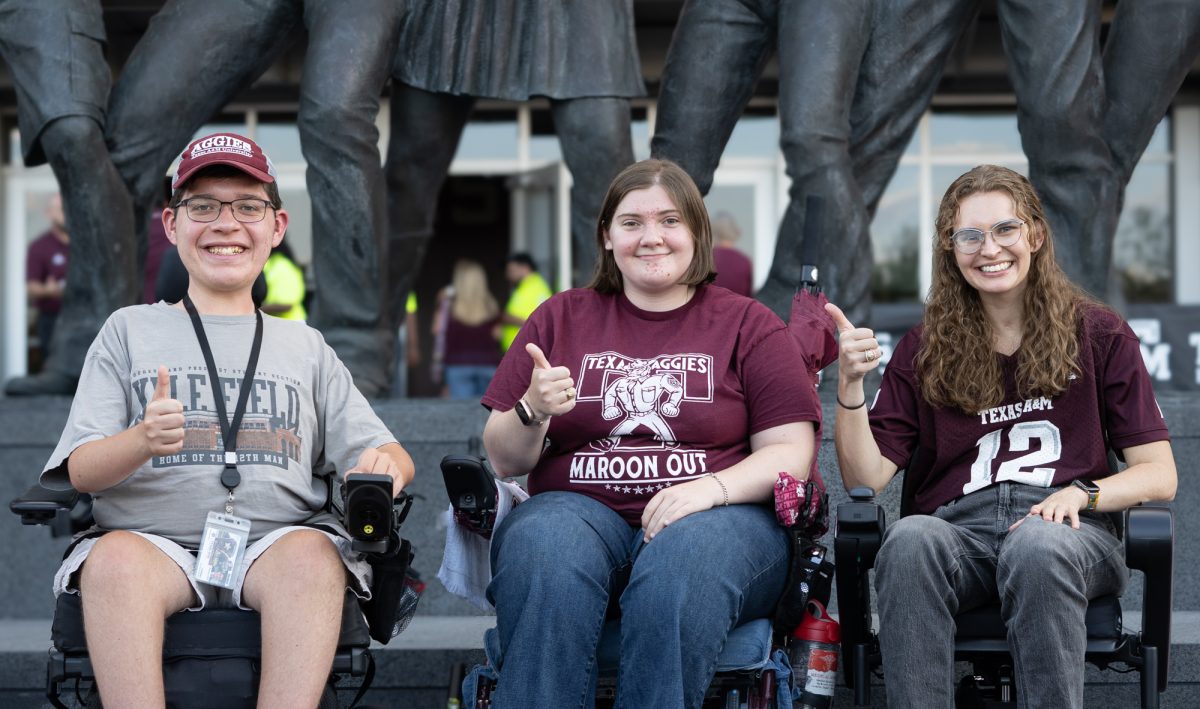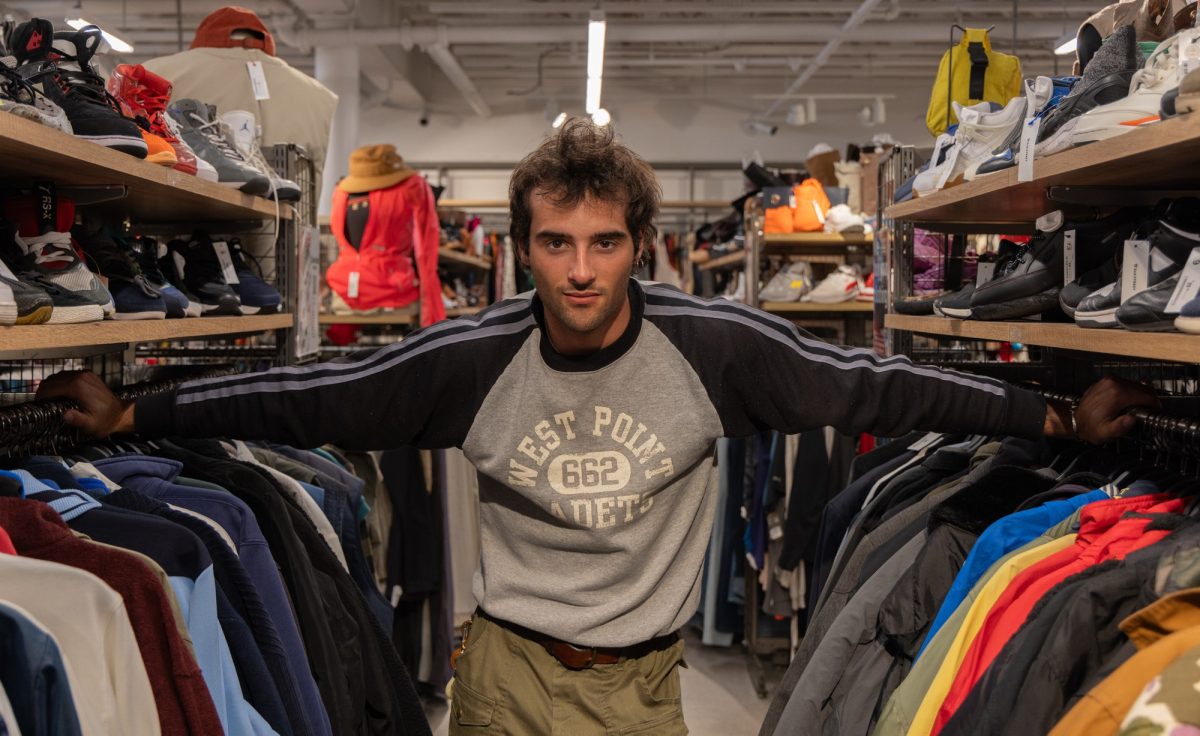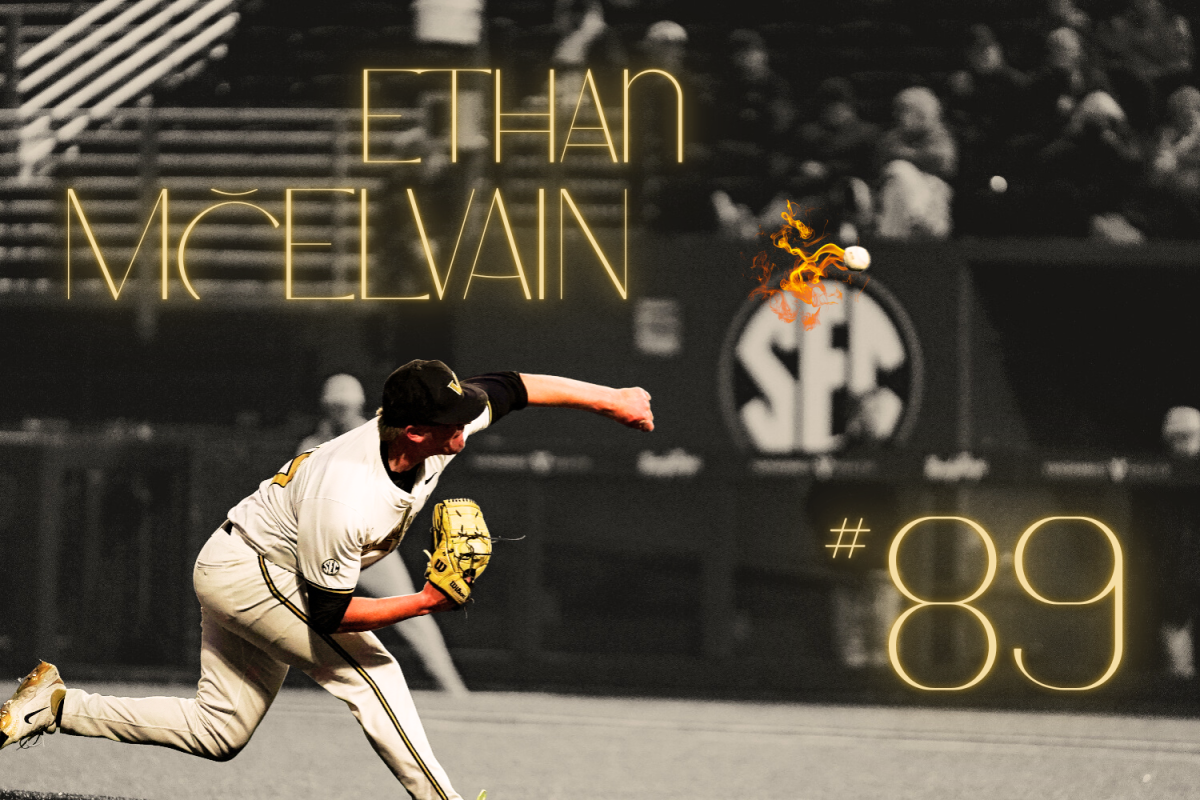For almost a decade, Texas A&M students with disabilities have allegedly been harassed and verbally abused when attempting to participate in on-campus traditions.
Four Aggies discussed their experiences and difficulties with gaining access to stadiums and regular campus facilities, ranging from lack of wheelchair access to harassment from fans in Kyle Field.
Structural engineering graduate Brianna Vogel, president of Aggies with Disabilities and an ambulatory wheelchair user, said she has faced difficulties participating in Aggie traditions for seven years.
“I went to Yell Practice once freshman year … and it was such a negative experience that I said, ‘I don’t want to go to Yell Practice again,’” Vogel said. “All I could see was rear ends. And my mom had gone with me, and she was frustrated … she’s deaf and she couldn’t see the ASL interpreter.”
Vogel has postural orthostatic tachycardia syndrome, or POTS, which is caused by blood vessels improperly circulating blood, leading to lightheadedness when standing. For Vogel — and the approximately 3,000 students with disabilities at A&M — Kyle Field has dedicated ADA sections in which standing is not permitted, allowing students in wheelchairs to see the field.
For people with POTS, being forced to stand up during games may present a physical hazard to their health, Vogel said.
“They sit down, and they start getting yelled at,” Vogel said. “They start getting booed … There’s at least one occasion where a student stood back up just to get people to be quiet, and she immediately passed out and got a concussion.”
Forensic and investigative sciences sophomore Samantha Sapp is only the fourth wheelchair user to be in the Corps of Cadets, a position which she says has made her aware of the inaccessibility of many of A&M’s traditions.
At the McNeese game on Sept. 7, Sapp and another Corps member who uses a wheelchair had security called on them after they asked a student in front of them to sit during kickoff so they could see the field.
Sapp said her experiences with football games have been so exhausting that she avoids going to sporting events that she is not required to attend. During most games, Sapp cannot see the field due to students standing in front of her.
“Guess what they did the entirety of the game?” Sapp said. “They stood in the no-standing seats … Security came over, corrected them … and the students then cussed out security. I was honestly scared to confront any of them about it because they cursed out a security guard. What are they going to do to me?”
Sapp has been advised to never be alone at Kyle Field by other students in the Corps with disabilities who have been verbally and physically attacked.
“It’s almost like the moment that you walk in, everyone is like, ‘Oh, you can’t do our tradition?” Sapp said. “Then you don’t deserve to be an Aggie.’ And that’s very, very disheartening.”
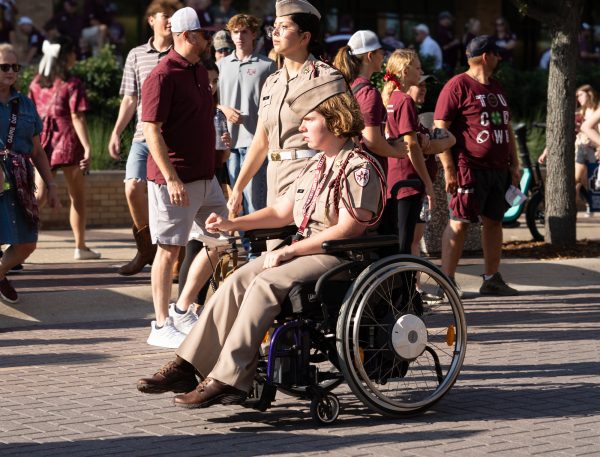
Kyle Field is not the only place on campus with physical barriers for students with disabilities. Placing pennies on Sully’s feet, visiting the Bonfire Memorial and even moving through Aggie Park are all challenging for students who use wheelchairs or other adaptive equipment.
“Aggie Park is the newest area on campus … and I would argue it’s the worst place on campus for a wheelchair,” Sapp said. “I had to leave my wheelchair outside of the bathroom to get inside. If you’re not an ambulatory wheelchair user, you have to crawl across the bathroom floor.”
Agricultural leadership graduate student Ty Sutton, one of the first students in the Corps to use a wheelchair, said he has consistently encountered structural and physical barriers that prevent him from accessing educational facilities or experiencing campus life.
“The worst experience I had was during the Auburn game in 2023,” Sutton said. “Most of these people were drunk. It’s all chaos. It’s like talking to a brick wall … and we asked them to sit down because we couldn’t see, and they said ‘No, we stand for the 12th Man. We’re not sitting.’”
When Sutton tried to find a security guard, there were none available for his section. When he returned to his section, the behavior continued to escalate.
“One of the guys turns around and gives me his middle finger and says, ‘If you can’t effing stand, you shouldn’t effing be here,’” Sutton said.
Sutton said he tried to obtain a ticket outside of ADA seating and was allegedly denied due to his disability. Under the ADA, public facilities have to provide equal access to seats for patrons with disabilities. Refusing to allow students with disabilities to sit outside of ADA seating is not allowed under the federal law.
According to A&M’s website on ADA compliance, all reports of civil rights violations are forwarded to the Office of Civil Rights and Equities, or CREI, which has been historically underfunded and understaffed. Best Crowd Management, the contractor who trains security guards for Kyle Field, denied to interview.
Educational administration and human resource development graduate Danielle Koehler has been experiencing difficulties at Kyle Field since she enrolled in 2019. Both her and her husband — a veteran with 100% disability — require accessible seating.
“When I talk to the 12th Man, they say, ‘Oh, it’s on security to fix the problem,’” Koehler said. “But you hire them. You do the contract. It is your problem, and the students should be your number one priority — and the ADA section should be a priority.”
Koehler and her husband were seated in the ADA section during the Aug. 31 football game against Notre Dame when she realized that people standing next to her had tickets for a different section. When security guards came to check tickets, the situation only escalated.
“They started arguing with security, saying, ‘Well, somebody is in my seat, so I came here because nobody is sitting here,’” Koehler said.
The people then left with security and returned. Koehler’s previous attempts at changing how ADA seats are treated within Kyle Field resulted in the installment of a metal sign in sections that are designated as ‘No Standing.’
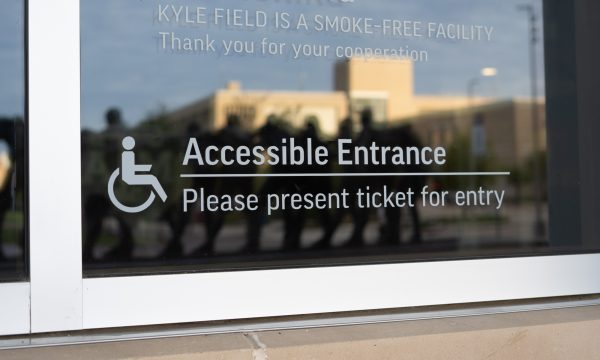
Erin Jones, the executive associate athletic director over game management and special events, said it’s difficult to ensure patron safety when students fail to comply with security guards’ instructions. While guards can remove patrons from the stadium, she said it is often the last resort.
“We have been told in many cases, by students, that when the ushers go through there to tell them to sit down, they cuss them out, they yell at them, they tell them to mind their own business,” Jones said.
For students who have complaints about conduct, Jones recommended speaking up. Ticket holders need to follow rules in their section, and ADA section tickets state that standing is not allowed.
“It would be a great learning experience for the student body, policing themselves,” Jones said.
For students with disabilities like Vogel, discrimination at Kyle Field is where they draw the line.
“We already deal with isolation and segregation and discrimination everywhere else,” Vogel said. “We just want to be able to participate.”
This story was originally published on The Battalion on September 26, 2024.




































